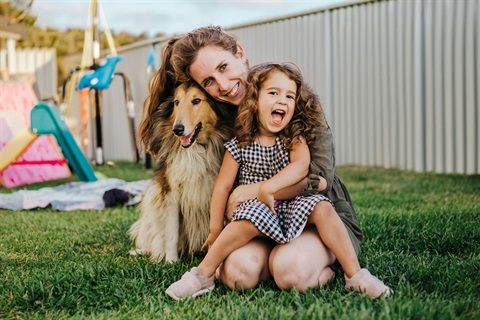
World Vision has grave concerns for thousands of people suffering in West Bengal, Odisha and Bangladesh in the wake of ‘super cyclone’ Amphan, with the potential for COVID-19 to spread fast in cyclone shelters where social distancing is impossible.
“This is a double disaster,” World Vision acting CEO Graham Strong said. “Our first priority is to protect life and meet immediate needs through our co-ordinated aid efforts while limiting the likelihood of a devastating outbreak.”
Cyclone Amphan killed 72 people and destroyed thousands of homes across the coastal regions of Odisha and West Bengal yesterday, as torrential rains and squally winds gusting over 180kph uprooted trees, electric poles and mobile towers and left thousands in flooded districts without electricity or telecommunications. Falling trees and electrocution caused most deaths.
“Many returning home from the cyclone shelters in West Bengal and parts of Odisha will find they have lost everything,” Mr Strong said. “The wellbeing of children and their families is our utmost priority. Our teams on the ground are providing families dry rations, shelter kits and cash transfer assistance.”
“We’re also giving out hygiene kits — a high priority when it comes to stopping the further spread of COVID-19 in this complex situation.”
The catastrophic effects of Cyclone Amphan will be ongoing, with thousands of hectares of agricultural lands swamped with floodwaters, causing severe crop loss. World Vision will also provide ongoing livelihood support and strengthen agricultural systems to help people recover.
Ten people in Bangladesh have died and around 10 million people are estimated to have been affected by the super storm, as heavy winds and three-metre tidal storm surges ravaged coastal districts and flooded hundreds of villages. More than two million people were moved to safe shelter as embankments collapsed. Roads, transport, power and mobile networks have been disrupted.
“Some 12,078 cyclone shelters were ready to accommodate the evacuees in line with COVID-19 prevention measures,” Mr Strong said. “And health complexes were prepared for the isolation of evacuees with COVID-19-like symptoms. As in India, our teams are focussed on meeting the immediate needs of those affected.”
Mr Strong was relieved that no loss of life was reported in the extremely vulnerable Cox’s Bazar refugee camp.
“Our hope – and prayer – is that World Vision’s measures will both meet people’s needs and lessen the possibility of a deadly pandemic outbreak, while people in India and Bangladesh recover from the enormity of this cyclone,” Mr Strong said.








